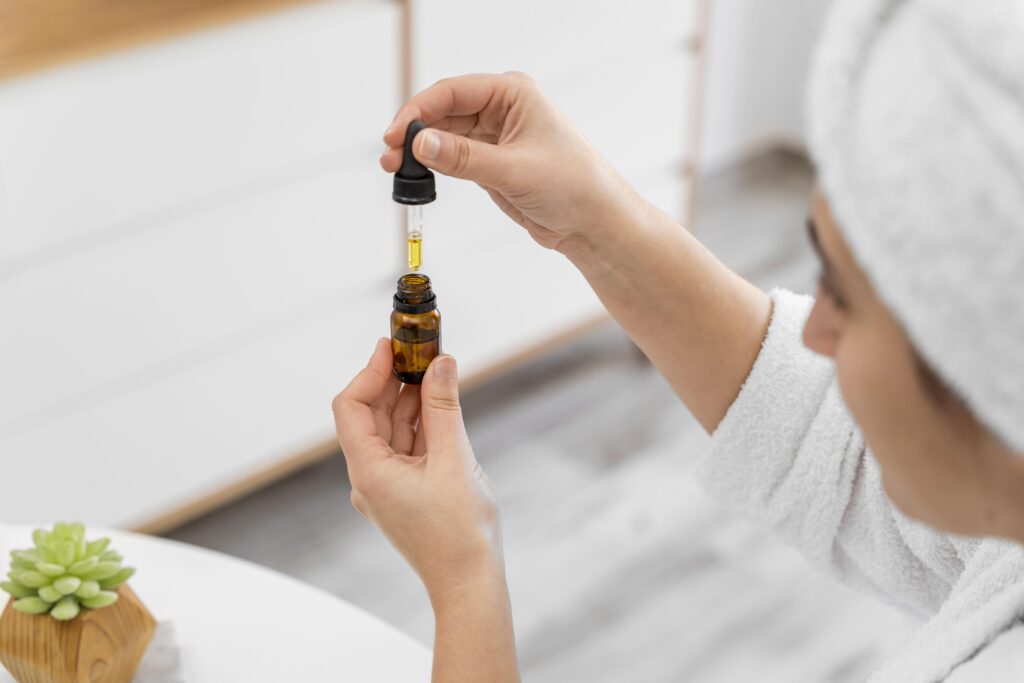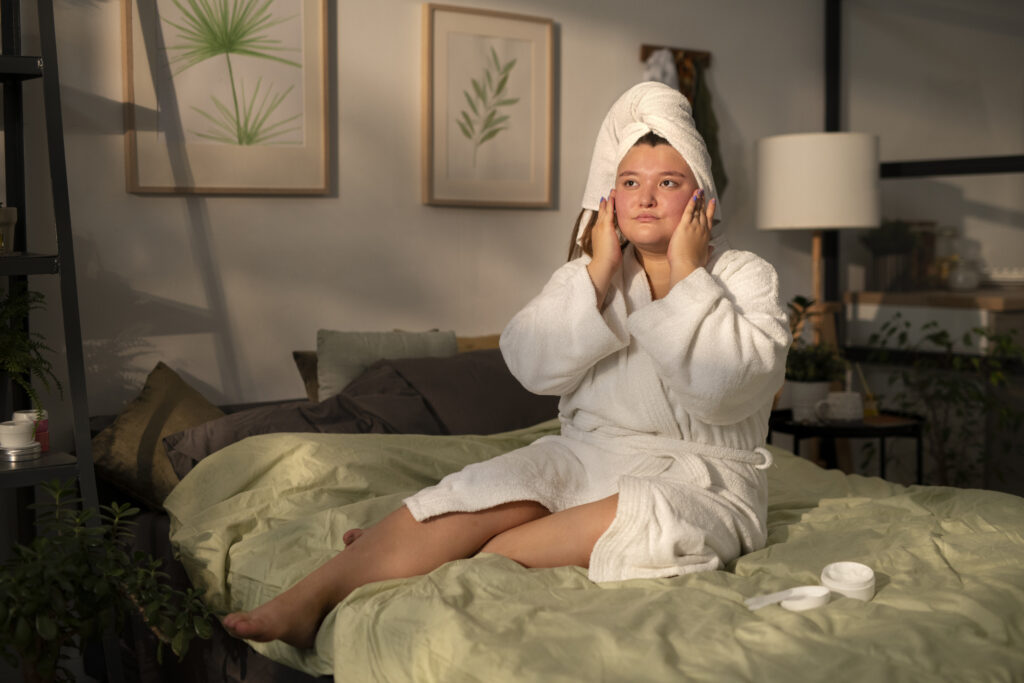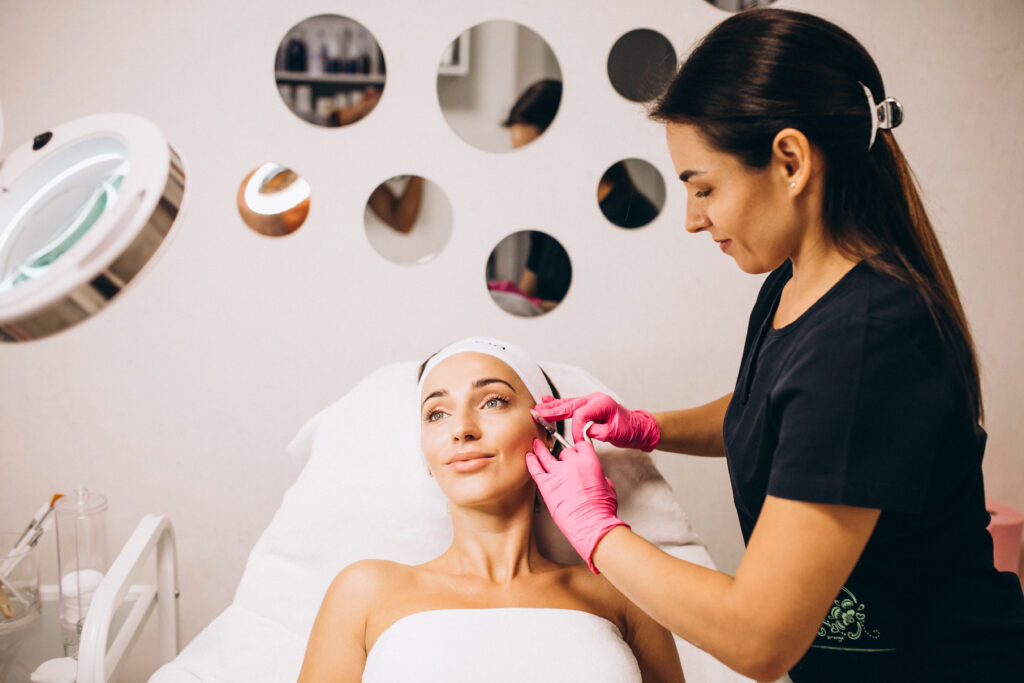Having a greasy, glossy face when you wake up might be irritating. This is a daily issue for many people, and it may affect not just how their skin looks but also their self-esteem. Knowing the reasons for morning face oiliness is essential to managing it effectively. This article looks at the reasons why your face gets oily when you wake up and provides tips and solutions to stop it.

2.Understanding the Skin’s Natural Oil Production
Your skin’s natural oil, sebum, is essential for maintaining the hydration and protection of your skin. However, what is sebum exactly?
- What Is Sebum? Sebaceous glands create sebum, which is necessary to preserve the skin’s barrier function.
- Benefits of Sebum: Sebum keeps your skin hydrated and shielded from external irritants, even if too much oil may appear bad.
Sebum production is normally regulated by your body. But an excess of oil can be caused by a number of things, especially at night.
3. Common Causes of Morning Face Oil
What causes your face to be greasy when you get up? A number of factors are involved:
- Hormonal Fluctuations: Throughout the night, hormone levels might change, which increases the production of sebum.
- Skincare Routine Issues: Excess face oil might result from improper product use or improper cleansing before bed.
- Sleep Environment: Face Oiliness can be made worse by sleeping on filthy pillowcases or by high room temperatures.
You may create solutions that are tailored to your requirements by being aware of these issues.
4. Hormonal Factors and Their Influence

Sebum production is significantly regulated by hormones. Oiliness can be exacerbated by imbalances or surges, such as those that occur during menstruation, adolescence, or pregnancy.
- Hormones and Sebum Production: One kind of hormone that has a significant impact on sebaceous gland stimulation is androgen.
- Common Imbalances: In addition to affecting hormone levels, conditions such as polycystic ovarian syndrome (PCOS) can cause oily skin.
Keeping an eye on your hormone balance may help you understand why your skin is so oily.
5. Genetics and Skin Type
There are instances when having oily skin is just a hereditary issue.
- Genetic Predisposition: It’s likely that you will have similar problems if your parents had oily skin.
- Different Skin Types: It’s essential to recognize whether you have oily, dry, combination, or normal skin, as each type requires a unique approach to skincare.
Finding appropriate skincare techniques is more important for controlling oily skin if it runs in your family than trying to completely eradicate it.
6. Environmental Influences
Your living circumstances and the surrounding climate have a big influence on how much sebum you produce.
- Climate Factors: As the skin attempts to regulate itself, high humidity levels frequently result in increased oiliness.
- Indoor Elements: Oil production can be affected by a number of factors, including air quality, bedding type, and room temperature.
Making changes to your surroundings, such changing your mattress or using a humidifier, can help.
7. The Role of Diet and Hydration
Your skin’s condition is directly impacted by the foods and beverages you consume.
- Diet and Oil Production: Sebum production can be triggered by diets heavy in processed foods and sweets. Conversely, diets high in nutrients, such as omega-3s, can aid in balancing oil levels.
- Hydration’s Impact: Maintaining the moisture balance of the skin is facilitated by staying hydrated. Sometimes, dehydrated skin overcompensates by generating extra oil.
Making thoughtful food selections can help cut down on extra oil.
8. Nighttime Skincare Habits
How oily your skin feels when you wake up is greatly influenced by your skincare regimen.
- Common Mistakes: Your skin will create extra face oil to make up for being stripped by harsh cleaners or neglecting moisturizer.
- Ideal Routine: A non-comedogenic moisturizer, a toner, and gentle washing can all have a significant impact.
To reduce morning oiliness, use skin-type-appropriate products.
9. Sleeping Positions and How They Affect Your Skin
Excessive oil production might also be influenced by your sleeping habits.
- Pressure on Your Face: One side of your face may have blocked pores and extra face oil if you sleep on your stomach or side.
- Minimizing Contact: Think about sleeping on your back and using silk or other soft, clean pillowcases.
By making this change, you may lessen the strain on your skin and avoid oil accumulation.
10. Stress and Sleep Quality
Stress and sleepless nights may cause increased oiliness.
- Stress-Induced Oil Production: Stress causes your body to release the hormone cortisol, which may increase the production of sebum.
- Improving Sleep: By practicing relaxation methods and maintaining a regular sleep schedule, you can improve the condition of your skin.
Taking care of your mental health may be just as important as utilizing skincare products.
11. The Impact of Over-Cleansing
While cleaning is vital, going overboard might backfire.
- Stripping Natural Oils: Overcleaning can eliminate the natural oils from your skin, which can lead to your sebaceous glands producing more oil.
- Balanced Approach: Wash your face no more than twice a day with a gentle cleanser.
It’s crucial to understand what your skin needs in order to avoid making oiliness worse.
12. Recommended Products for Oily Skin
Effective management of oily skin may be achieved by selecting the appropriate products.
- Best Cleansers: Seek out foamy or gel-based cleansers made for greasy skin.
- Effective Toners and Moisturizers: Tea tree oil, niacinamide, and salicylic acid are among ingredients that can help reduce excess oil.
- Sun Protection: Sunscreen is necessary even for greasy skin. Select an oil-free, lightweight formula.
Oiliness may be controlled with regular use of the right skincare products.
13. Home Remedies and DIY Solutions
Excess oil may be effectively managed with natural remedies.
- Popular Ingredients: Aloe vera, honey, and clay masks are among the ingredients that can absorb excess face oil without irritating the skin.
- DIY Mask Recipe: Impurities may be drawn out and face oil can be controlled using a basic clay mask made of bentonite clay and water.
In order to prevent skin irritation, use these therapies cautiously.
14. When to See a Dermatologist
Over-the-counter medications and home cures are insufficient in certain situations.

- When to Worry: It might be time to visit a dermatologist if you have oily skin along with severe acne or other symptoms.
- Treatment Options: Dermatologists can provide professional advice and prescription treatments based on your needs.
Finding long-term, practical answers might be aided by expert advice.
16. Conclusion
Understanding the causes and making lifestyle and skincare changes are two ways to manage morning face oiliness. Experiment with different remedies and seek expert assistance if required to determine what works best for your skin.
